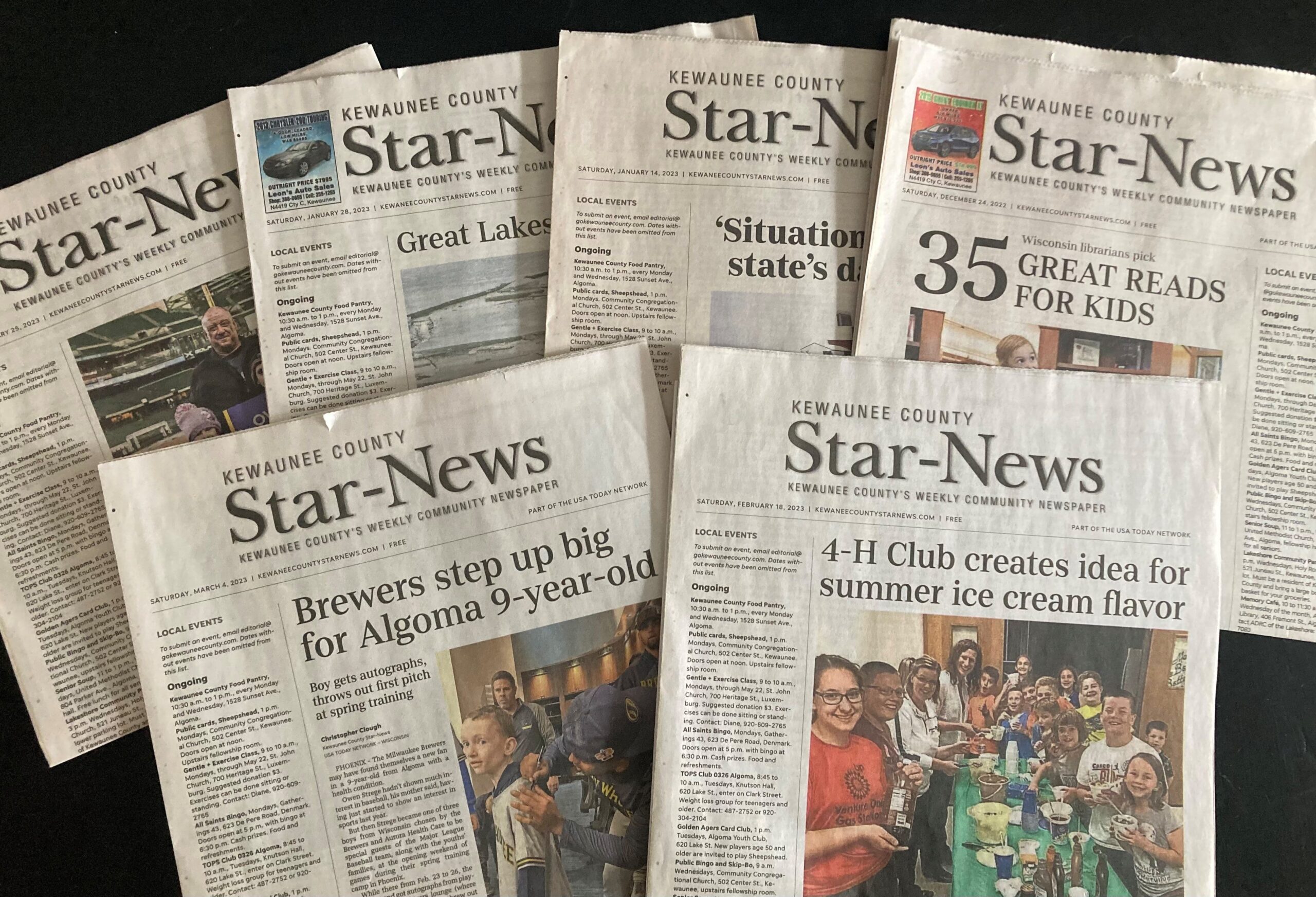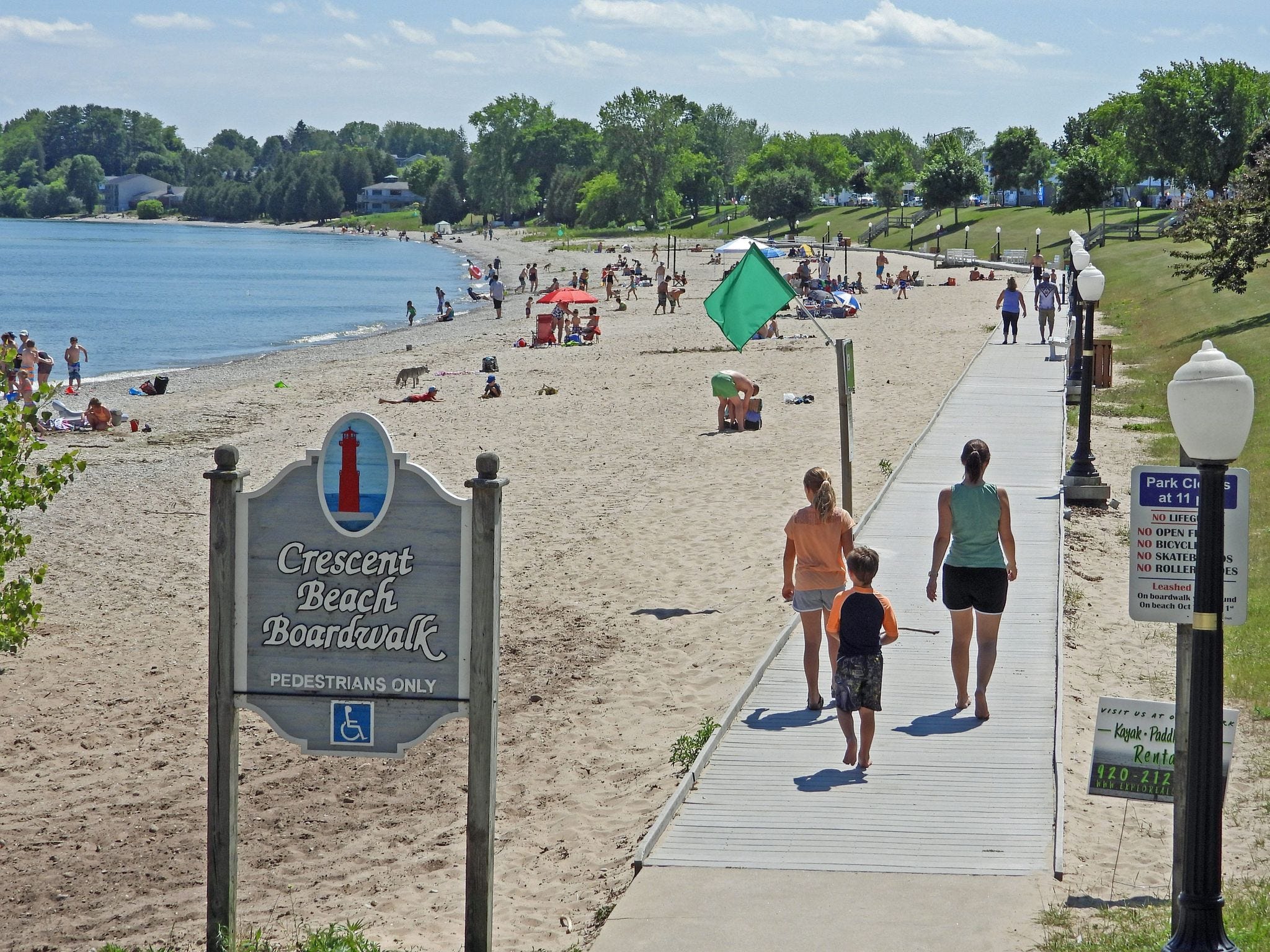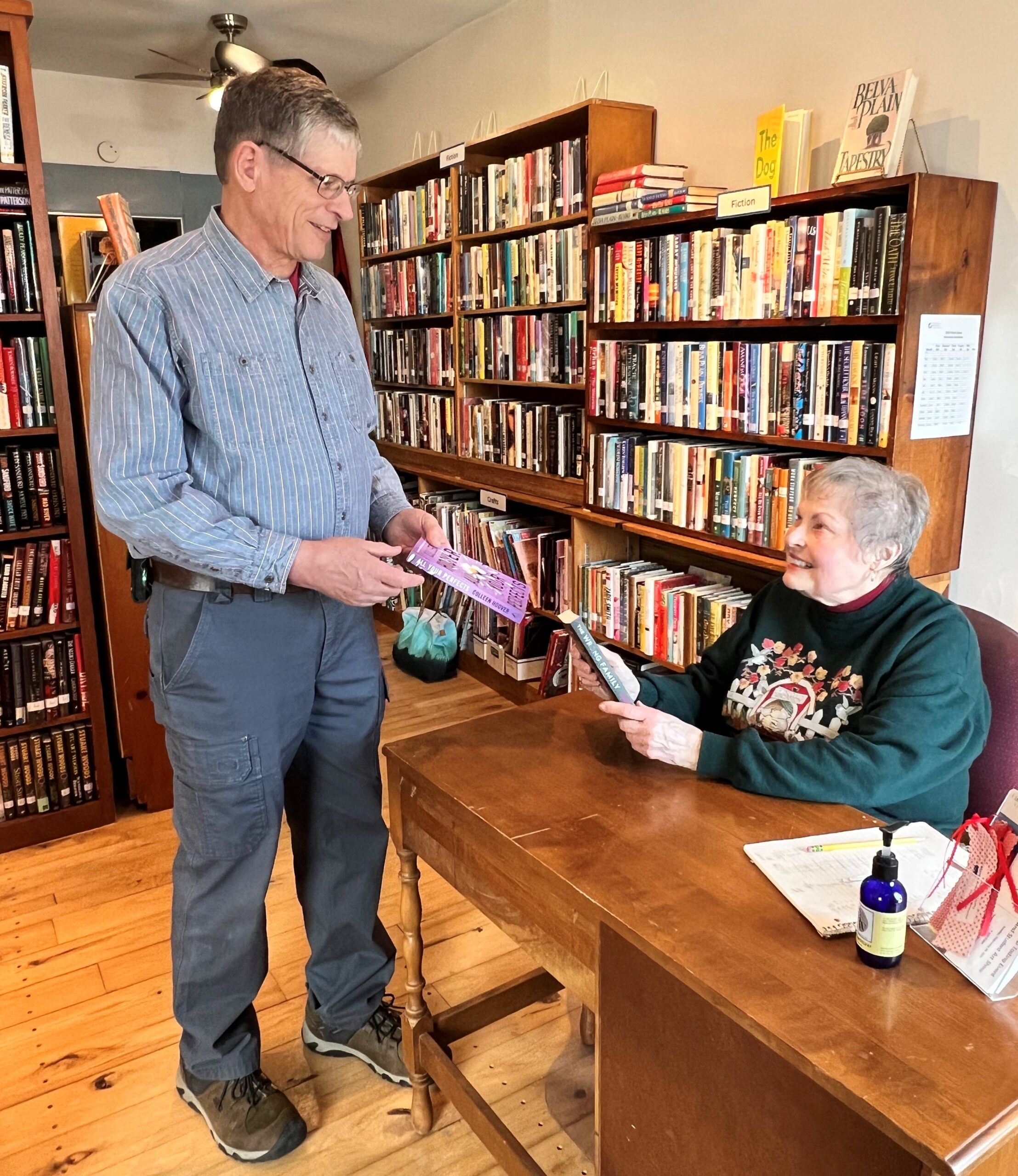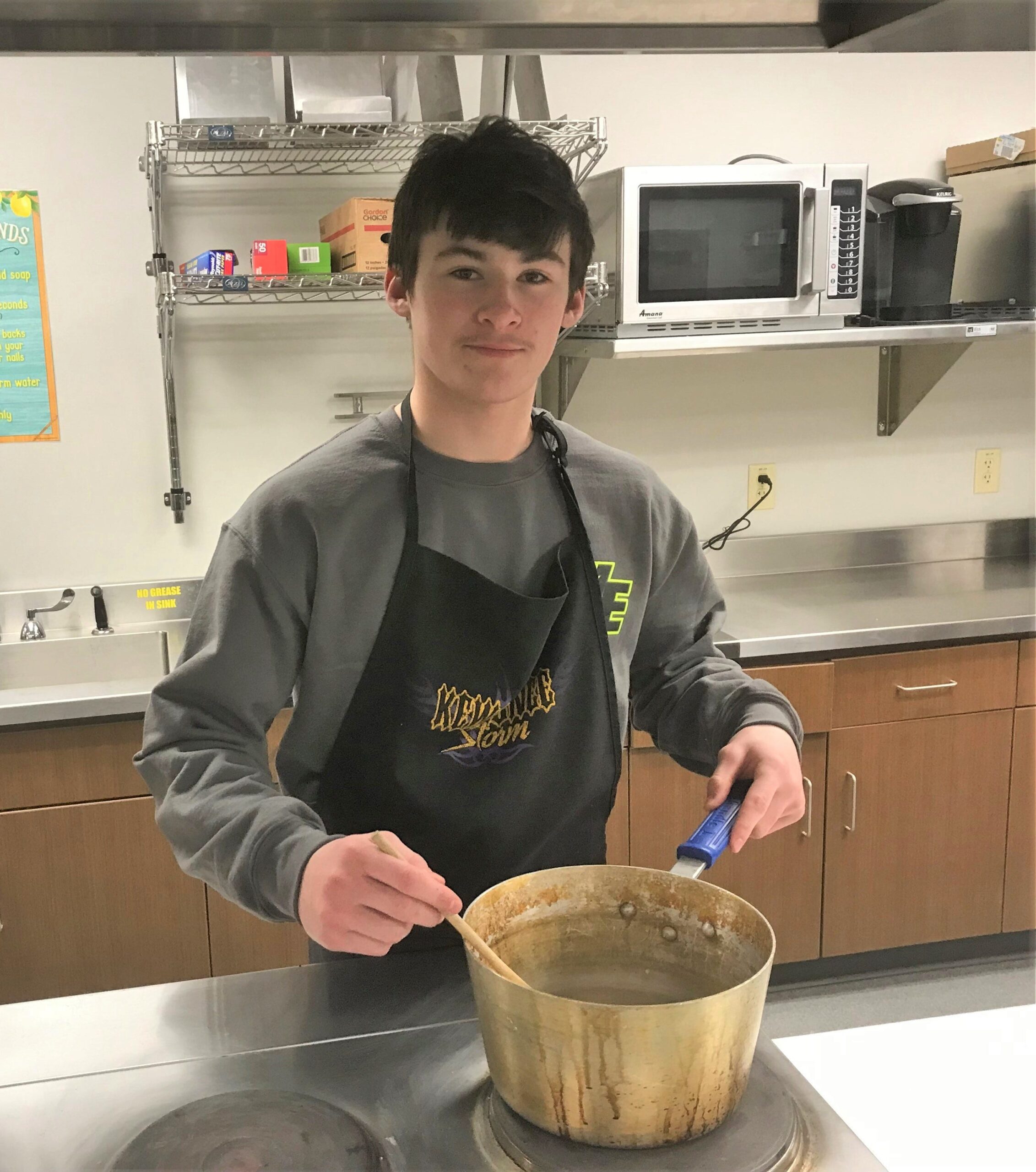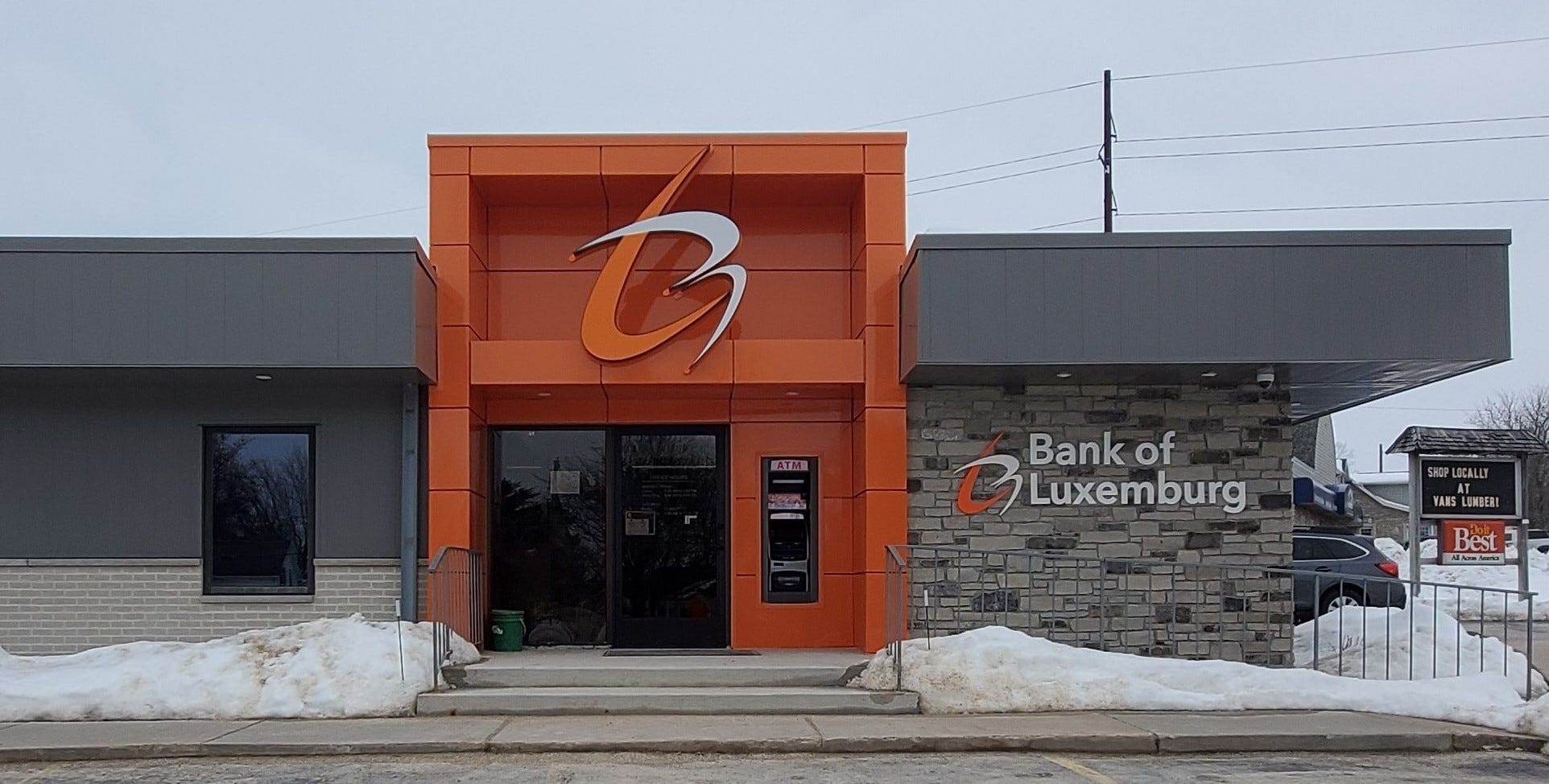Algoma’s Community Conversation focuses on change
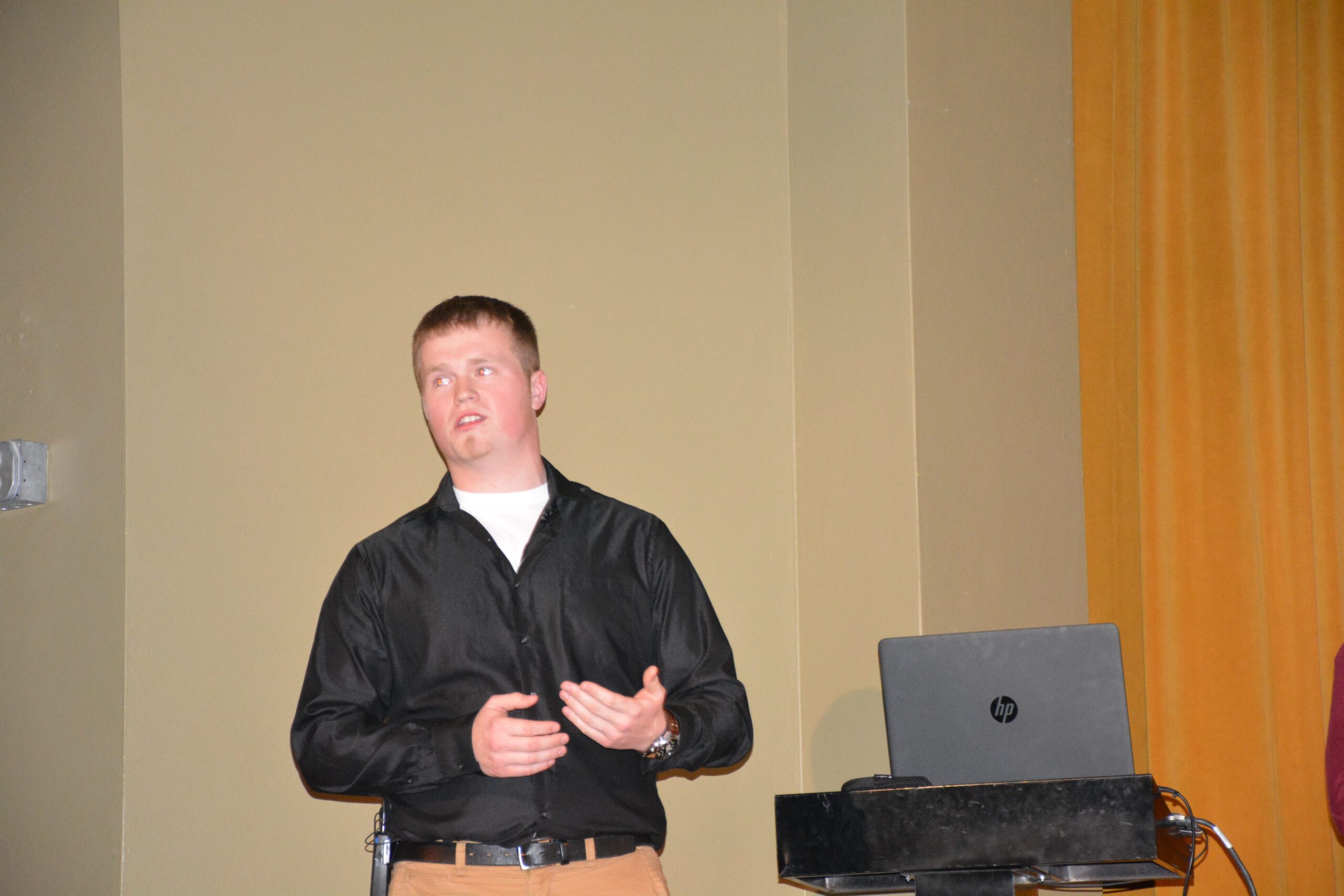
Algoma has many assets, including its youth, schools, and its appeal as a place to live and vacation, approximately 100 residents at its first “Community Conversation” learned last week.
Presentations and conversation were sponsored by the city of Algoma and Live Algoma Team and held at the Algoma Performing Arts Center.
During the program, seven senior Algoma High School students spoke on stage who were members of the high school’s Harvard X class – students who were focused on Improvement Science in partnership with the Institute of Health Improvements.
The institute has recognized Algoma as one of 20 pacesetter communities in the country.
As part of the presentation, the students were asked by senior Reese Moore, student correspondent to the school board and member of Live Algoma, if they cared about Algoma.
Whether they had moved here three years ago or were from a fourth-generation Algoma family, all expressed their deep commitment to the community where they were attending high school.
“When Mr. (Superintendent Nick) Cochart came to our school, we saw improvements and all the good things he and the school board were doing,” said Kayden Robertson. “This community has shaped us because we can see all the good things that are going on.”
The students listed the New Wellness Center, partnerships with local businesses, the Performing Arts Center and strong academics, athletics and teachers as some of the positive change they saw in the community.
Daniela Gomez spoke for the Hispanic community.
“I want to say for kids that are Hispanic that everything is possible,” said Gomez. “I am so grateful to have participated in the Harvard Class, and I love to see the caring and growing and want everyone to love this community as much as I do.”
Quinn Fenendael said that went he thought of Algoma High School four years ago, it had some problems, but that lots of positive change had occurred in the school since then.
“I want to be part of the change,” said Fenendael. “As I graduate this year, it is going to be hard to leave this city.”
“Throughout the last four years, we have seen change … that hasn’t been here in the last 50 years,” said Moore. “The central theme has been change.”
Change will also be part of the city’s efforts to continue to increase tourism by creating a more welcoming community. The audience also heard about a “secret shopping” exercise organized by the University of Wisconsin-Extension and the Algoma and Oconto chambers of commerce to help Algoma improve its tourism and quality of life for local residents.
Partnering with the city of Oconto, a group of 10 residents from Oconto came to Algoma for three days last July and graded the city on its “First Impressions.” In exchange, a group of Algoma residents visited Oconto and reported on their first impressions of that community.
Claire Thompson, community resource development agent and department head with the UW-Wisconsin Extension, reported to the audience on the results of the visit to Algoma.
The Oconto shoppers gave high marks to the city for its downtown area shops and restaurants and its beach, lakefront and lighthouse, she said.
While the impressions of Algoma were overwhelmingly positive, the group suggested the following changes:
> Signs entering the city and directing visitors needed to be more cohesive. In particular, the report said that Algoma should improve the visibility and wayfinder signs to the Ahnapee Trail.
> Water assets should become more tourist friendly by offering additional services for visitors to “get out on the water,” such as rental motor boats, kayaks, canoes, jet-skis and other water equipment.
> The downtown area could be enhanced with small “pocket parks” that could contain playground equipment, art work, sculptures, historical themes or special gardens.
> Downtown businesses and residences could improve their facades, perhaps through low-interest loans that could help make building exteriors look more attractive.
> Infrastructure, such as broken sidewalks, should be repaired and more access should be provided for adults with disabilities.
> Customer service could be upgraded by customer service training. While the shoppers said that some local restaurants and shops provided excellent service, service was not consistent throughout the city.
> The Anhapee Trail entrance should be highlighted as a major tourist and community asset and access to rental bicycles should be provided.
Steve Meyer, vice president of the Karma Group in Green Bay also presented a “Living in Algoma” Community Study based on focus groups held with 77 Algoma residents ages 15-75 and sponsored by Bellin Health.
“This report is about the soul and spirit of people who are part of the community,” he said.
The report examined the impacts on wellness and well-being in the community with the goal of helping Algoma to become more of a model community in the future, he said..
One of the key results that was not uncommon in small communities like Algoma was the strong impact that gossip had on residents and the barriers it placed on well-being , Meyer said.
“Everybody knows everybody else’s business in Algoma,” he said. “One man said, ‘I have to go to work on Monday to find out what I did over the weekend.’”
He said as a result residents live with a “source of tension that varies between comfort and anxiety.”
There is an increased comfort level in being connected to a community network, but a greater sense of anxiety if an individual does something wrong, he said.
But he also said that residents enjoyed living in Algoma because they felt sheltered from big city problems.
He said the city provided a “safe harbor” from the faster pace of city life. The lakefront also gives residents a sense of “tranquility” and “a refuge that fosters well-being.”
He told residents, however, that many outsiders feel unwelcome when they move to the city.
“There is a tribal mindset here,” he said. “Nearly every adult with no family roots in the community has felt unwelcomed and has struggled to fit in.”
He said that in order to fit in, residents had to have a known, local last name, be an active member of a church, have kids in the district schools or have a nickname.


He said that the community also needed to help develop more assistance for families that are dealing with mental illness and drug and alcohol addiction.
“The people in the focus groups knew people who have these problems but didn’t want to get involved,” he said. “They said it was not their place to say anything.”
He said that in order to be a model community, residents needed to reach out more to outsiders. He said that because Algoma was fairly isolated and did not have many commuters to bigger cities like Green Bay, the culture had not been open to the benefits that new residents can bring.
He also said that the community needed to learn to provide more support for families dealing with mental health and addiction problems.
He noted that the Wellness Center, Youth Center, Performing Arts Center and improvements to the high school were all sources of great community pride.
Like many small-town communities, he noted, athletic students received lots of recognition, but academic, arts and other non-athletic pursuits were not often as recognized.
Meyers also spoke about the importance of youth taking risks and developing career and other dreams for their lives.
“There is more pressure to conform than to have dreams here,” he said.
In concluding the community conversation, however, several of the high school students grew tearful when talking about all the positive experiences growing up in Algoma had provided them.
They said that whether they had come to the community recently or had grown up here, they all cared about Algoma and wanted to see the community thrive.
“The kids are so passionate about what they are doing,” said Moore. “It is great to see the younger generation coming up.”
Karen Ebert Yancey can be reached at [email protected], on Facebook at Kewaunee County Star News Facebook, on Twitter at @EbertYancey or by calling 920-559-1235.
This article originally appeared on Green Bay Press Gazette: Algoma's Community Conversation focuses on change

